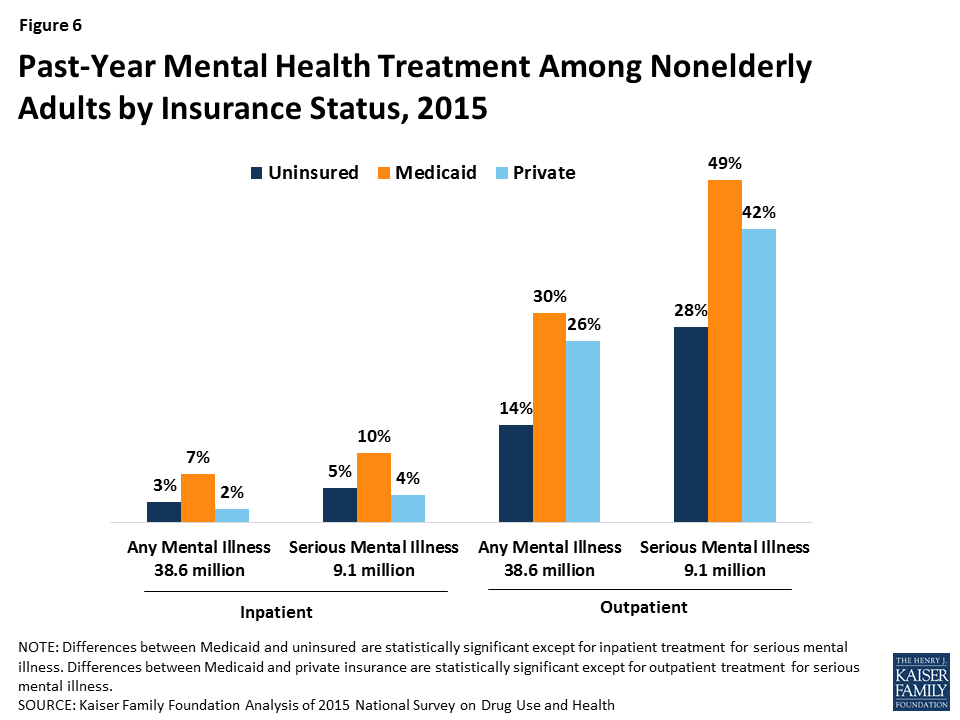The next crucial thing you can do is develop and keep a strong relationship with your child's instructors and with the school. If your child has actually been identified with a psychological or behavioral health concern, bring it to the school's attention and ensure they are included in your treatment plan.

If the school refuses to work with you or isn't able to offer anything in the method of support, it may be time to search for another school that much better suits your kid's needs. By bringing your pediatrician and your kid's teachers together, you can create an extensive support system for your child.
Though the roadway may be tough, your kid depends upon you for love and support so do whatever you can to offer your child what they require to succeed and grow.
A U.S. Surgeon General report indicates that a person in five kids and adolescents will deal with a Substance Abuse Facility significant psychological health condition during their academic year. Psychological health disorders impacting kids and teenagers can vary from https://israelvwmt211.shutterfly.com/22 attention deficit hyperactivity disorder (ADHD) to autism, depression, eating disorders, schizophrenia, and others. Trainees struggling with these conditions face considerable barriers to finding out and are less most likely to finish from high school.
Rumored Buzz on How Does Stress Affect Your Mental Health
As leaders work to meet these duties, they deal with an array of challenges related to mental health: Schools have traditionally used their resources to employ a considerable variety of trainee support specialists - how does mental health affect society. These school team member have been the core around which extensive school-based programs have been established and implemented.
By the 201415 academic year, there was one school counselor for every single 482 trainees. The advised ratio from the American School Counseling Association is one school counselor for every single 250 students. Data from the U.S. Department of Education Workplace for Civil Rights shows that one in 5 high schools do not have a school counselor.
Within a district, many schools must share school psychologists, school social employees, school nurses, and other specialized support personnel. This increases the caseload of these psychological health experts and limitations access to their services for trainees in need of assistance and help. While the People with Disabilities Act (IDEA) and the Elementary and Secondary Education Act (ESEA) consist of programs and efforts to deal with thorough assistance services in schools, because FY 2009 the financing for these programs, consisting of the Safe and Drug-Free Schools and Communities Act (SDFSCA) State and Regional Grants Program, has actually been seriously cut, if not removed.
In FY 2009, the federal programs supporting students' mental health and wellness went beyond $800 million; nevertheless, in FY 2017, Congress was investing just $400 million to support Title IV and the SSAE grant program, less than 25% of its authorized level of $1.65 billion under the Every Student Succeeds Act (ESSA).
How Cell Phones Affect Phycological And Mental Health Can Be Fun For Anyone
For unfortunate historical and cultural factors, mental disorder has actually constantly been stigmatized in our society. This preconception appears by predisposition, suspect, stereotyping, worry, embarrassment, anger, and/or avoidance. Dealing with psychosocial and psychological health concerns in schools is usually not assigned a high concern, except when a high-visibility occasion occurs, such as a shooting on school, a student suicide, or a boost in bullying.
According to Drug Rehab Delray the Union to Assistance Grieving Students, death by suicide is the 3rd leading cause of death in kids ages 1014 and the second leading cause of death in children ages 1519. Close to one in 5 high school trainees has thought about suicide, and 2 to 6 percent of kids attempt suicide.
Principals and other school personnel need to likewise concentrate on preventative steps for causes that are linked to suicide, such as bullying. These obstacles highlight the need for extensive mental health support services and avoidance programs to build the capacity of schools as they help each student reach his or her maximum potential.
As a 2017 research study evaluation in the Harvard Review of Psychiatry asserted, there is a growing body of evidence that supports the efficiency of psychological health programs in schools and their ability to reach great deals of kids. NASSP thinks, and recent research study has verified, that school management affects student achievement (2nd just to guideline, especially for at-risk trainees) (how does mental health affect college students).
The Best Guide To How Can Poor Mental Health Affect Your Physical Health
Structure Ranks: A Comprehensive Structure for Effective School Leaders consists of "health" as a measurement of structure culture, specifying that school leaders "foster and support a deliberate focus on wellness because healthy students and grownups learn and communicate productively." NASSP believes that for schools to promote a safe learning environment for all trainees, consisting of those students that may be suffering from some type of psychological health problem, policymakers need to supply sufficient levels of access to mental health and counseling services for all students who attend our public schools, in order to promote success in school and to resolve the psychological health needs of students suffering from some kind of diagnosable mental disorder.
NASSP is dedicated to supporting principals and other school leaders in their work to prevent teen suicide, while also supplying principals, school leaders, and schools with resources and assistance for attending to teen suicide in the unfortunate event that it happens within a school neighborhood. NASSP acknowledges that, in addition to detected psychological health problem, today's middle level and high school trainees often face a myriad of undiagnosed mental health concerns such as tension and stress and anxiety, anxiety, alcohol and drug abuse, eating disorders, sleep deprivation, disruptive circumstances in the house, and absence of nutrition.
NASSP believes focused efforts at the local, state, and federal levels to secure funding for resources to support and sustain mental health programs will resolve the issue at hand. Federal and state federal governments must offer financial backing to allow regional communities to carry out a thorough culturally and linguistically appropriate school-based mental health program that supports and promotes the health and development of students.
The federal government needs to offer states and local communities the ability to combine federal and state funding from separate agencies to resolve mental health and school safety problems at the local level. The federal government ought to totally fund the Student Assistance and Academic Enrichment Grants under Title IV, Part A of the Elementary and Secondary Education Act to help K12 schools offer trainees access to advanced courses and college and career counseling.
The Single Strategy To Use For How High School Sport Injury Affect Us In The Long Run Mental Health
Federal and state policymakers need to assist schools in recruiting and keeping school therapists, school social employees, school psychologists, and mental health experts to support school-based interventions and the coordination of psychological health and health services. States and city governments ought to assist in community collaborations amongst families, trainees, law enforcement firms, education systems, mental health and compound abuse service systems, family-based psychological health service systems, federal government companies, healthcare service systems, and other community-based systems.

State and local policymakers ought to offer funding to support the hiring of mental health specialists to serve students and schools. State and local policymakers should supply financing to increase expert development opportunities for school leaders and other school personnel. State and local policymakers ought to supply financing for thorough school-based health centers, particularly those that offer psychological health services.